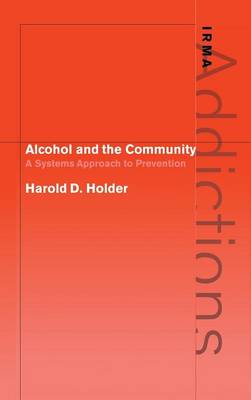International Research Monographs in the Addictions
1 total work
An individual's decision to use alcohol and the frequency, quantity and situation of such use are the result of a combination of biological and social factors. Drinking is not only a personal choice, but also a matter of custom and social behaviour, and is influenced by access and economic factors including levels of disposable income and cost of alcoholic beverages. Until prevention efforts cease to focus narrowly on the individual and begin to adopt broader community perspectives on alcohol problems and strategies to reduce them, these efforts will fail. This book, first published in 1998, challenges the current implicit models used in alcohol problem prevention and demonstrates an ecological perspective of the community as a complex adaptive system composed of interacting subsystems, an appreciation and understanding of which offers an alternative approach to the prevention of alcohol dependence and alcohol-related problems.
